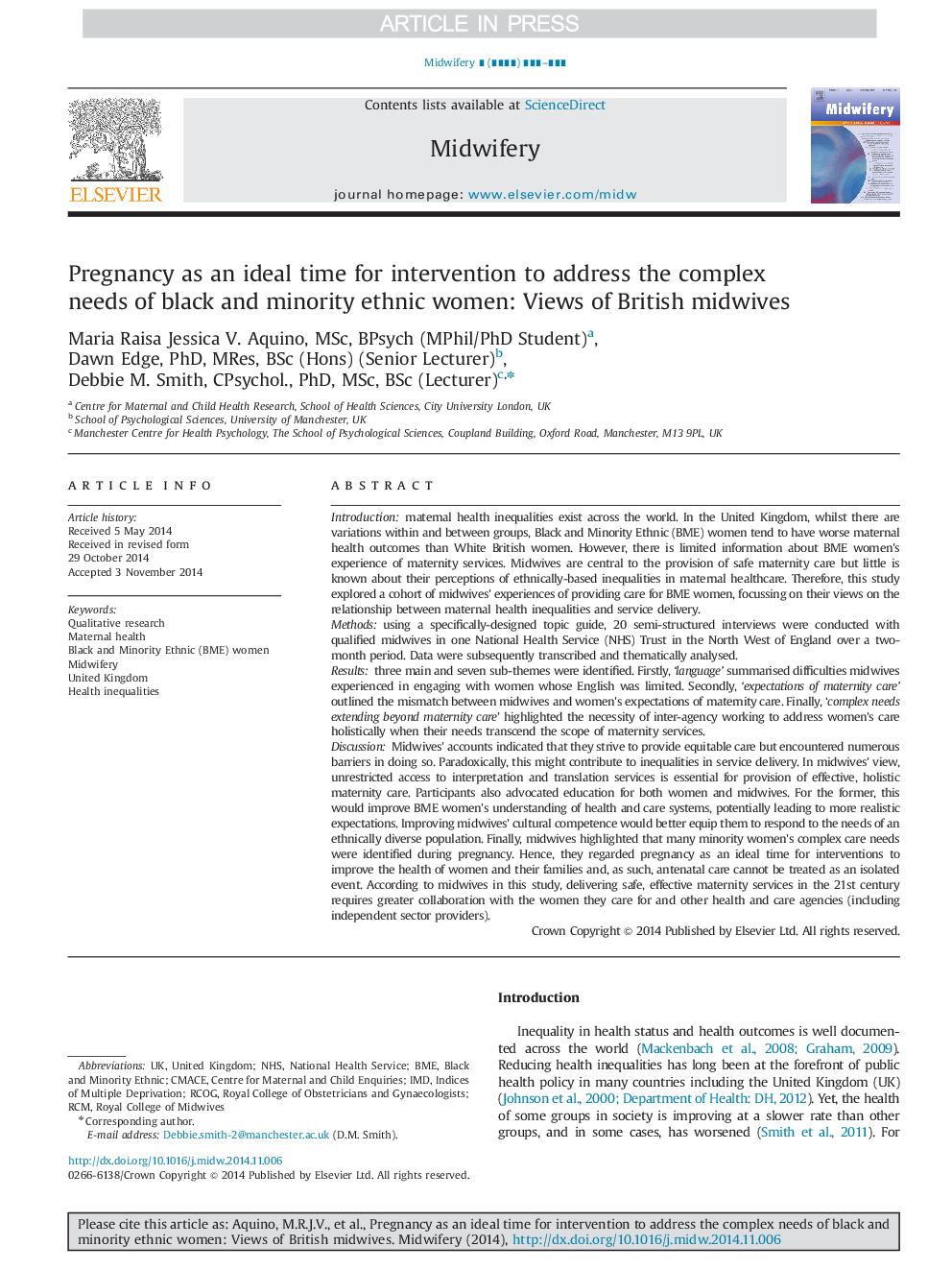| Article ID | Journal | Published Year | Pages | File Type |
|---|---|---|---|---|
| 10515728 | Midwifery | 2015 | 7 Pages |
Abstract
Midwives׳ accounts indicated that they strive to provide equitable care but encountered numerous barriers in doing so. Paradoxically, this might contribute to inequalities in service delivery. In midwives׳ view, unrestricted access to interpretation and translation services is essential for provision of effective, holistic maternity care. Participants also advocated education for both women and midwives. For the former, this would improve BME women׳s understanding of health and care systems, potentially leading to more realistic expectations. Improving midwives׳ cultural competence would better equip them to respond to the needs of an ethnically diverse population. Finally, midwives highlighted that many minority women׳s complex care needs were identified during pregnancy. Hence, they regarded pregnancy as an ideal time for interventions to improve the health of women and their families and, as such, antenatal care cannot be treated as an isolated event. According to midwives in this study, delivering safe, effective maternity services in the 21st century requires greater collaboration with the women they care for and other health and care agencies (including independent sector providers).
Keywords
Related Topics
Health Sciences
Medicine and Dentistry
Obstetrics, Gynecology and Women's Health
Authors
Maria Raisa Jessica V. MSc, BPsych (MPhil/PhD Student), Dawn PhD, MRes, BSc (Hons) (Senior Lecturer), Debbie M. CPsychol., PhD, MSc, BSc (Lecturer),
